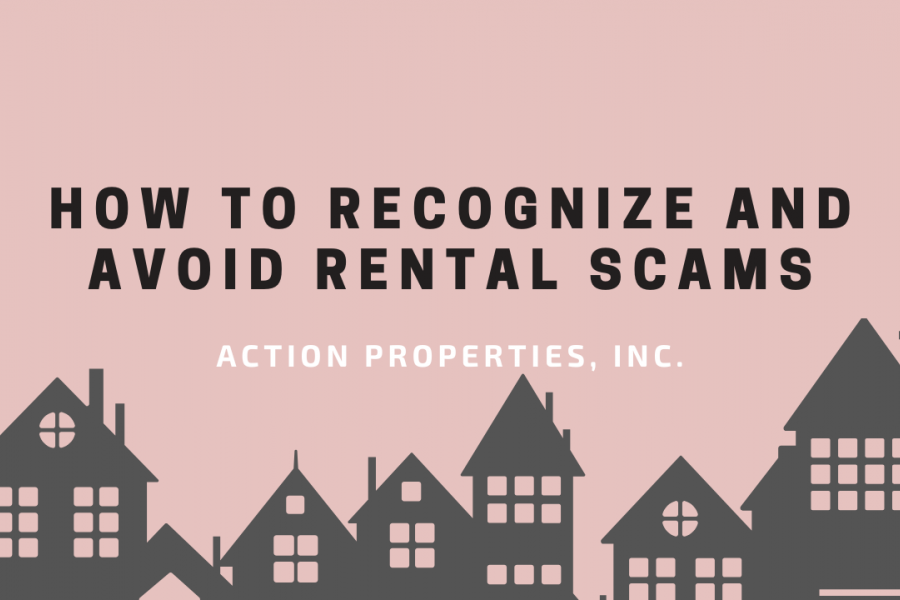
Rental scams are a growing concern in the real estate industry, affecting both prospective residents and rental property owners. With online listings and digital transactions becoming the norm, scammers have found new ways to deceive property owners and applicants alike.
As a rental property owner, understanding common scam tactics and implementing preventative measures can protect your property and reputation.
Understanding Rental Scams and Their Impact on Property Owners
Rental scams usually involve dishonest individuals attempting to lease properties they do not own or misrepresenting rental listings to extract money or personal information from potential residents. These scams can damage a property owner’s reputation, lead to financial losses, and even create legal complications.
Common Types of Rental Scams
Rental scams vary in complexity, from simple impersonation to elaborate fraud schemes. Here are some of the most common scams that property owners should be aware of:
- Fake Listings: Scammers create fake listings of legitimate properties they don’t own. They copy photos and details from other listings and post them with lower-than-market rents to attract interest. When interested individuals respond, the scammers ask for deposits or application fees, which they keep before disappearing.
- Identity Theft: Some scammers pose as prospective residents to gather sensitive information, such as Social Security numbers, bank details, or employment information, under the guise of a rental application. They may use this information to commit identity fraud or access financial accounts.
- Unauthorized Subletting: In this scenario, scammers may lease a property under false pretenses, only to re-list it at a higher rent to an unsuspecting third party. This can cause issues with legal occupancy and disrupt the property’s intended use.
- Overpayment Scams: A scammer poses as a resident who "accidentally" overpays rent or deposit, usually with a fake check. They then request the property owner refund the excess amount. By the time the fake check bounces, the property owner has already sent money back, resulting in a financial loss.

How to Recognize Rental Scams
Spotting scams can be challenging, especially as they evolve to appear more legitimate. However, here are some red flags to watch for in interactions with prospective residents.
- High Pressure to Complete the Transaction: Scammers often push for a quick transaction, pressuring you to accept an application or deposit without conducting thorough checks.
- Refusal to Meet In Person or Tour the Property: Legitimate residents typically want to see the property before committing to a lease. Scammers, however, may avoid in-person meetings or offer excuses for why they cannot tour the property, often claiming they are out of state or abroad.
- Request for Unusual Payment Methods: Be cautious if you’re asked to accept non-traditional payment methods like wire transfers, prepaid cards, or cryptocurrency. Scammers favor these methods because they are difficult to trace.
- Incomplete or Questionable Application Details: A prospective resident who provides limited personal information, inconsistent application details, or refuses to undergo background or credit checks could be hiding something.
- Excessive Willingness to Pay Above Market Rate: While it may seem appealing, an applicant offering to pay above market rate or more than the required deposit may have ulterior motives. This can be part of an overpayment scam or a sign they intend to sublet at a profit.

How to Protect Your Rental Property from Scams
Now that you’re aware of common scam tactics and warning signs, it’s crucial to take proactive steps to safeguard your rental property:
- Screen Applicants Thoroughly: Conduct comprehensive screening on all applicants. Require proof of income, employment verification, and identification documents.
- Meet Prospective Residents In Person: Whenever possible, arrange an in-person or virtual meeting with applicants. In-person meetings help confirm identity and gauge an applicant’s genuine interest in the property.
- Verify Contact and Employment Information: Cross-reference contact details and employment information with reliable sources.
- Use Secure Payment Methods: Always require payments through secure and traceable methods, such as direct bank transfers or checks. Avoid accepting payments through services that are difficult to trace or reverse, such as cash or wire transfers.
- Work with Professional Property Management Services: If you own multiple properties or don’t have time for detailed applicant screening, a property management company can handle the entire leasing process. These professionals have experience recognizing scam tactics and protecting property owners from fraudulent activity.
- Keep an Updated Online Presence: Scammers often copy photos and details from property listings. Monitor listing platforms regularly to ensure no one is impersonating your property online.
- Report Suspected Scams Immediately: If you encounter a potential scam, report it to the relevant authorities and online listing platforms. You may also inform other rental property owners and your local landlord association.

What to Do If You’re Targeted by a Rental Scam
If you suspect you’ve been targeted by a rental scam or have unwittingly interacted with a scammer, take the following steps:
- Stop Communication Immediately: Discontinue any further contact with the scammer, as responding may encourage them to continue trying to exploit you or others.
- File a Report with the Authorities: Report the incident to local law enforcement, the Federal Trade Commission (FTC), or your state’s consumer protection agency. These reports help track and combat rental scams on a broader scale.
- Alert Online Platforms and Social Media Sites: If the scam involves an online platform, such as a listing website, contact their support team to report the fraudulent activity. Most sites have procedures to handle scam reports and prevent further incidents.
- Educate Others: Sharing your experience with other property owners or industry groups can raise awareness and help others avoid similar scams. Many communities have landlord associations or online forums where property owners share tips and warnings about fraudulent activity.
Conclusion
Rental scams can be costly and damaging to rental property owners, but by understanding common scam tactics and staying vigilant, you can reduce the risk of falling victim to these schemes. Take the time to screen applicants thoroughly, insist on meeting in person, and avoid unusual payment methods.
If managing these steps seems overwhelming, consider partnering with a reputable property management company to handle the leasing process and safeguard your investment. With the right precautions, you can minimize the likelihood of rental scams and ensure a smoother, safer experience in managing your rental properties. Reach out to Action Properties, Inc. if you need assistance.